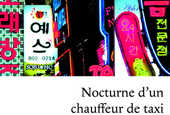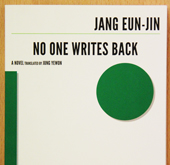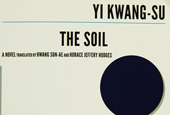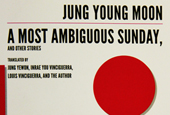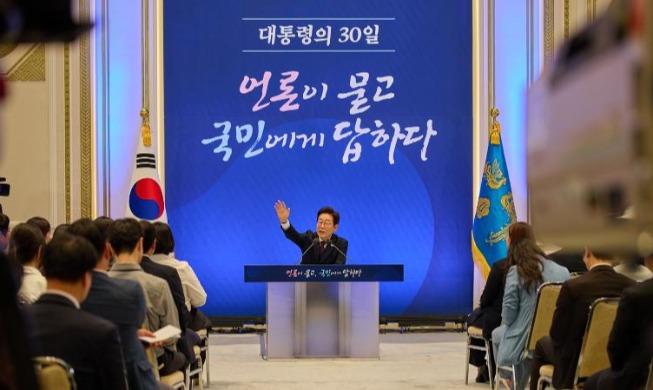Why do theatergoers go and see plays on the stage? It’s quite possibly because live actors and actresses provide something unique and delightful that only theater can offer.
Lee Gun-sam (1929-2003) has long been regarded as standing out among other playwrights, even posthumously, when it comes to the way in which he writes his plays, each of which gives answers that quench the audience’s insatiable thirst.
The playwright is credited for marking a milestone in the history of Korean theater, as he depicts his characters in such a dramatic manner, using descriptive, allegoristic, expressionistic and ironic methods, accompanied by creative musical and poetic elements.
Most noticeably, Lee adopts farcical elements to portray somewhat irrational characters, which is a real boost to the theatrical entertainment value of his plays. At the same time, he throws acute criticism at the irregularities of society and dissects the hypocrisy of modern life using satire, humor and parody. He has been, and will remain, Korea’s most acclaimed playwright, a man who brings audiences to a new world of theatrical delight.
Now, global audiences can read some of Lee’s most prominent work in English. "A Grand Retreat and Other Plays," a collection of five of Lee Gun-sam's plays, was translated and published in English last year.
The collection features five of the playwright's most prominent pieces: "A Grand Retreat" (2001); "Boar and Deer" (2001); "A Thief at Mom's" (2000); "Gesani" (1983); and, "The Last Performance of an Old Actor" (1998).
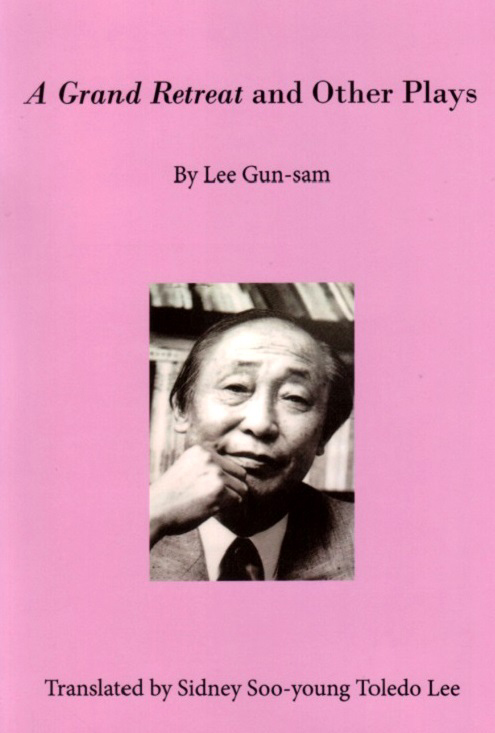
The title story, "A Grand Retreat," tells the story of a man past middle age who has been walking down the single path of being a volleyball coach for the past 27 years. One day, bad news comes to him, the news that he has been replaced by a younger, stronger coach. Despite the shame, he never lets the great sense of loss trap him in distress. Instead, he quickly recovers from the disappointment and gets ready to face the new challenges ahead of him.
The second story, "A Thief at Mom's," is centered on the underprivileged neighbors in a community on the brink of redevelopment. Even facing these odds, they still remain cheerful and caring, as if they didn't care at all about their poverty and miserable situation.
The story of another play, "The Last Performance of an Old Actor," revolves around the last phase in the life of an unknown elderly actor. The piece focuses on the feeling of loneliness and isolation that an elderly man in his twilight years may endure.
Born in 1929 in Pyongyang, now in North Korea, Lee Gun-sam graduated from Dongguk University with a degree in English Literature in 1952. He completed his graduate studies at both the University of North Carolina and New York University in 1959 and 1966.
His career as a playwright started as early as 1958, when he wrote plays in English which were put on stage in North Carolina. The next year, he made his domestic literary debut with the play “Manuscript Paper.”
Lee also taught at Dongguk University, Joongang University and Sogang University, while always being actively engaged in being a playwriting. He published a total of 56 works before his demise in 2003, including “The 18th Republic,” “Still, the World is Worth Living” and “Lee Seung-gye’s Property.”
By Sohn JiAe
Korea.net Staff Writer
jiae5853@korea.kr
Lee Gun-sam (1929-2003) has long been regarded as standing out among other playwrights, even posthumously, when it comes to the way in which he writes his plays, each of which gives answers that quench the audience’s insatiable thirst.
The playwright is credited for marking a milestone in the history of Korean theater, as he depicts his characters in such a dramatic manner, using descriptive, allegoristic, expressionistic and ironic methods, accompanied by creative musical and poetic elements.
Most noticeably, Lee adopts farcical elements to portray somewhat irrational characters, which is a real boost to the theatrical entertainment value of his plays. At the same time, he throws acute criticism at the irregularities of society and dissects the hypocrisy of modern life using satire, humor and parody. He has been, and will remain, Korea’s most acclaimed playwright, a man who brings audiences to a new world of theatrical delight.
Now, global audiences can read some of Lee’s most prominent work in English. "A Grand Retreat and Other Plays," a collection of five of Lee Gun-sam's plays, was translated and published in English last year.
The collection features five of the playwright's most prominent pieces: "A Grand Retreat" (2001); "Boar and Deer" (2001); "A Thief at Mom's" (2000); "Gesani" (1983); and, "The Last Performance of an Old Actor" (1998).

Playwright Lee Gum-sam’s collection of plays is published in English for a wider global audience. (photo courtesy of the Daesan Foundation)
The title story, "A Grand Retreat," tells the story of a man past middle age who has been walking down the single path of being a volleyball coach for the past 27 years. One day, bad news comes to him, the news that he has been replaced by a younger, stronger coach. Despite the shame, he never lets the great sense of loss trap him in distress. Instead, he quickly recovers from the disappointment and gets ready to face the new challenges ahead of him.
The second story, "A Thief at Mom's," is centered on the underprivileged neighbors in a community on the brink of redevelopment. Even facing these odds, they still remain cheerful and caring, as if they didn't care at all about their poverty and miserable situation.
The story of another play, "The Last Performance of an Old Actor," revolves around the last phase in the life of an unknown elderly actor. The piece focuses on the feeling of loneliness and isolation that an elderly man in his twilight years may endure.
Born in 1929 in Pyongyang, now in North Korea, Lee Gun-sam graduated from Dongguk University with a degree in English Literature in 1952. He completed his graduate studies at both the University of North Carolina and New York University in 1959 and 1966.
His career as a playwright started as early as 1958, when he wrote plays in English which were put on stage in North Carolina. The next year, he made his domestic literary debut with the play “Manuscript Paper.”
Lee also taught at Dongguk University, Joongang University and Sogang University, while always being actively engaged in being a playwriting. He published a total of 56 works before his demise in 2003, including “The 18th Republic,” “Still, the World is Worth Living” and “Lee Seung-gye’s Property.”
By Sohn JiAe
Korea.net Staff Writer
jiae5853@korea.kr
